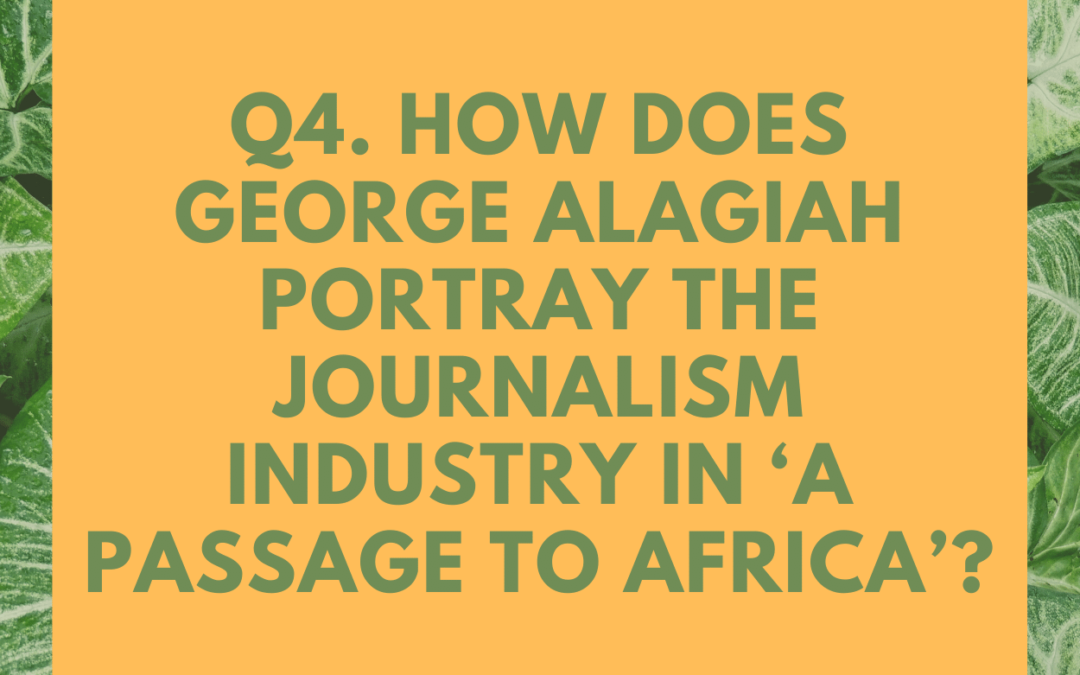Edexcel English IGCSE: A Passage to Africa by George Alagiah
Q4. How does George Alagiah portray the journalism industry in ‘A Passage to Africa’?
In your answer, think about:
- the priorities of the journalist;
- the reactions and feelings of the writer;
- the significance of the man’s smile;
- the writer’s use of language techniques.
You should refer closely to the text to support your answer. You may use brief quotations.
Edexcel English IGCSE Model Essay by an Expert
This passage offers an honest and troubling view of the journalism industry. It highlights both the practical priorities of the journalist, but also the necessity of the industry.
Alagiah describes the apparently callous attitude of the journalists who must hunt for the most disturbing pictures. Troublingly, he suggests that journalists become accustomed to, even bored of, seeing terrible suffering. They “tramped from one hunt to another”, suggesting a sense of drudgery, as if they have seen it all before. He admits that scenes which would have “appalled them” at first, now “no longer impressed them”. The word “impressed” is usually used for something positive; this refers to the conflicting feelings of the journalist, who is glad when he gets a ‘good’ image of someone suffering terribly. Alagiah acknowledges the sinister nature of this practice. He describes it as “ghoulish”, making it sound spooky and even morally wrong. He describes the search as being “like the craving for a drug”. This simile clearly has extremely negative connotations, and also suggests that the ‘need’ for shocking imagery is beyond their control.
This account of journalism in Somalia offers the reader a graphically honest portrayal of what it is like to be in such an impoverished place. Alagiah gives the reader an insight into the experience of these terrible scenes by appealing to the senses: “the smell of decaying flesh”, “putrid air” and “held the clammy palm”. The horror of such scenes make it even more shocking for the reader when Alagiah admits that he is usually “inured” and “accustomed” to such poverty. As well as expressing pity for the suffering Somalians, Alagiah explains that he experiences “revulsion”. He predicts the reader’s surprise with the short sentence which responds to their predicted disagreement: “Yes, revulsion.” This can be seen as insensitive and even disrespectful of the people who are suffering, but it is an insight into the realities of the journalism industry.
The man’s smile highlights to Alagiah the troubling relationship between journalist and subject. He outlines in simple terms the established relationship: “The journalist observes, the subject is observed.” The man’s smile challenges the subject’s established passivity; by expressing embarrassment at his condition, he makes Alagiah feel uncomfortable about his relative privilege. As a result, Alagiah resolves to portray the story of the village with “power and purpose”. The plosive alliteration reflects the strength of his determination. This decision reminds the reader of the positive impact of journalism; whilst it might be an industry steeped in controversy and discomfort, the purpose is to “move people” back home, who need to be made aware of the situation across the world.
The journalism industry is portrayed as conflicted and complex. Whilst the activities of journalists and their relationships with their subjects might be troubling, the industry is necessary for telling people’s stories across the world.



